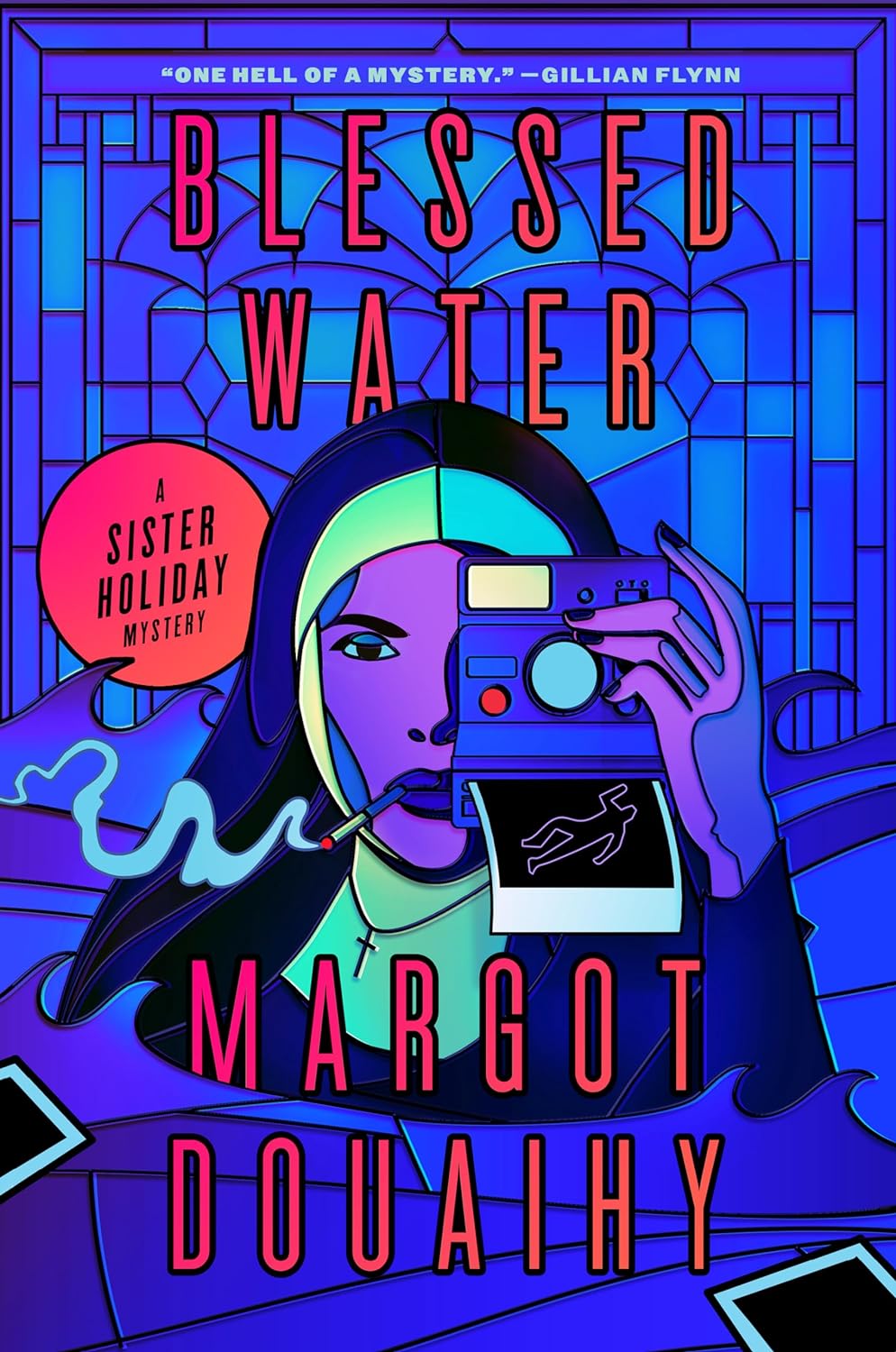Review of Blessed Water: A Sister Holiday Mystery by Margot Douaihy

Blessed Water: A Sister Holiday Mystery
Margot Douaihy
Zando, Gillian Flynn Books, 2024, 288 pages
$27.95
Reviewed by Roberta Arnold
Punk rocker nun sleuth Sister Holiday is on the case again in this brilliant sequel to Scorched Earth. Blessed Water is rife with fluid language and water imagery; one dead priest is fished out of the Mississippi, and the ominous photo of another missing priest slides under the door in a polaroid. Sister Holiday and her lead-footed ex-fire inspector partner, Magnolia Riveaux, snake their way over turbulent floodwaters to find Father Nathan, the quiet Black priest who, like Sister Holiday, can’t get over the loss of his mother. Douaihy is an accomplished poet with four published books of poetry under her belt, and she unfurls sentences with life lessons through language that ranges from the sensate to the sublime.
Sister Holiday’s partner, Riveaux, wears mom jeans and a tight ponytail and has recently rid herself of a white guy–and a pill addiction acquired from a broken back. Sister Holiday joined the Parish school and convent to find redemption from the sins of her past–a past that includes the unforgivable in her mind. She finds poetic justice poking at barbaric hierarchical structures to see what shakes out. Holiday and Riveaux both have an unusual style reserved for those who live on the margins and know how to look in the places between things–a gap or crevice more easily seen by those who live outside the norm: a haunted lesbian nun covered in tattoo ink and a beautifully brazen Black ex-cop who embraces the little things in life that inspire awe.
While not fitting into any prescribed family model, Sister Holiday paradoxically daydreams about growing old with her one true love, Nina. In the first Sister Holiday book, love-making between the two exploded off the pages with unbound lesbian desire. Holiday’s past resurfaces in Blessed Water through the character of her brother, who turns up unexpectedly–the Moose to her Goose, two nicknames defined by the symbiosis of their childhood play. One-liners spark in flinty propulsion and invariably move the story along or toss it up in the air, delivering devil-may-care chutzpah to the saints and sinners of New Orleans.
In the acknowledgements, Douaihy recognizes the harm done by the Catholic church and colonialist rule. Douaihy’s writing takes its redemption with the strident knowledge that two opposing things simultaneously can be true, similar to a marginalized lesbian finding redemption in Catholicism. The stories and writing offer up pictures of life as vehicles of insight, wisdom, and humor not to be missed.
“My insides churned. Riveaux and I walked back to the truck to the soundtrack of Riveaux’s cane and my muttering. Hail Mary, full of Grace. Let the afterlife be a lesbian separatist commune. Amen.”
Roberta Arnold is a Sinister Wisdom board member and volunteer who reads and writes and walks in awe of nature every day. She lives in the mountains of SW Virginia near to her sister, her dog, and her cat, none of whom really belong to her.
"Empowerment comes from ideas."
― Charlene Carruthers
"Your silence will not protect you."
— Tourmaline
"Gender is the poetry each of us makes out of the language we are taught."
— Leila Raven


